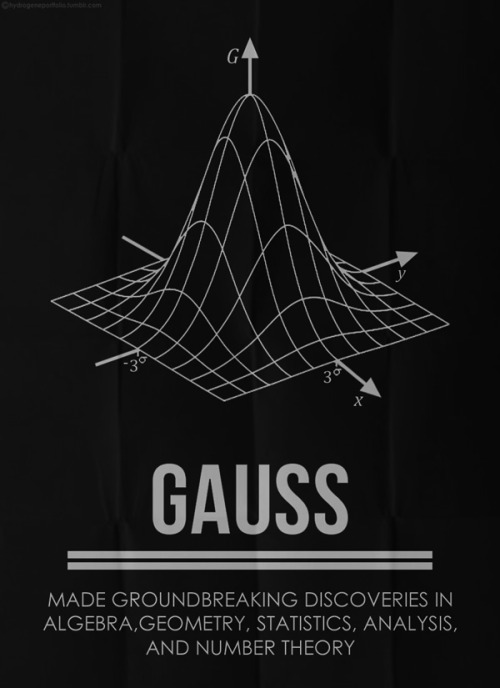On The Care And Keeping Of Your Scientist
On the care and keeping of your scientist
Congratulations on adopting a scientist! Regardless of their field they will require much coffee, free food, and love. Here are some field specific tips for keeping your scientist happy and healthy!
Biology: make sure they don't get overly invested in their model organism by reminding them about the flaws inherent in their system on a regular basis, but also make sure to join in when they criticize other models in favor of their own
Chemistry: don't let them do that 'just one more reaction' at 10 pm. make sure they get out of the lab and see the sun on a regular basis. try to keep them from partying too hard when they do leave the lab
Geology: humor their rock puns but don't let the lick the rocks (they will tell you they need to lick the rocks to identify them, but don't fall for it)
Astronomy: try not to let them become completely nocturnal. point out nice stars to them and look suitably impressed by their "pictures" of planets that don't look like anything to you
Physics: take them to the park on a regular basis to remind them that things larger than subatomic particles exist. bring a frisbee or a ball to play catch with and be impressed by their ability to calculate trajectories
Math: always make sure to have free batteries for their calculators and a mathmatica user guide on hand. Humor them when they tell you why space without angles is important
Ecology: make sure they remember to wear sunscreen and keep an eye on them in the field. Remind them to come inside and analyze their data occasionally
Psychology: don't mention Freud or ever call them a soft or social science, but make sure you gently remind them that social factors can impact reproducibility and try to keep them from drawing sweeping conclusions about the inherent nature of humanity
Neuroscience: be suitably impressed by their newest experiment and then remind them that people are not mice as often as possible
Computer Science: make sure they take breaks while debugging by limiting their supply of coffee. Nod and smile when they go off on indexing and arrays. Make sure they always have a rubber duck.
Make sure to keep your scientist away from engineers unless they have been properly socialized to interact in a translational household. The most important thing is to remember to hug your scientist on a regular basis and remind them that there is life outside the lab
More Posts from Sleepysneezeydopeydoc-blog and Others







The faster you move, the heavier you get
If you run really fast, you gain weight. Not permanently, or it would make a mockery of diet and exercise plans, but momentarily, and only a tiny amount.
Light speed is the speed limit of the universe. So if something is travelling close to the speed of light, and you give it a push, it can’t go very much faster. But you’ve given it extra energy, and that energy has to go somewhere.
Where it goes is mass. According to relativity, mass and energy are equivalent. So the more energy you put in, the greater the mass becomes. This is negligible at human speeds – Usain Bolt is not noticeably heavier when running than when still – but once you reach an appreciable fraction of the speed of light, your mass starts to increase rapidly.





Helix Nebula
Images: NASA, NOAO, ESA, the Hubble Helix Nebula Team, M. Meixner (STScI), and T.A. Rector (NRAO).


I guess it’s also the right setting for pictures of the Moon at night.
ISS Solar Transit [Explained]

I would not sit there. Who knows how much radiation is there 😨

Each trig function in terms of the other five: color coded. Idk I’m just playin’ around in LaTeX and thought this table on Wikipedia would be worth color coding on its own so I made this little ditty. The reciprocal functions are the lighter colors of their regular trig counterparts. I wouldn’t call this a final version, but, hey, it’s pretty cute. High five for pattern recognition.





Minimalist Posters of Great Mathematicians.
-
 icereader12 reblogged this · 4 months ago
icereader12 reblogged this · 4 months ago -
 icereader12 liked this · 4 months ago
icereader12 liked this · 4 months ago -
 the-aromancer liked this · 5 months ago
the-aromancer liked this · 5 months ago -
 legallyschrodingers liked this · 5 months ago
legallyschrodingers liked this · 5 months ago -
 imitative-magpie liked this · 5 months ago
imitative-magpie liked this · 5 months ago -
 jesperequecenomestpaspris liked this · 5 months ago
jesperequecenomestpaspris liked this · 5 months ago -
 st4rshiptr00per liked this · 5 months ago
st4rshiptr00per liked this · 5 months ago -
 khunkiseia reblogged this · 5 months ago
khunkiseia reblogged this · 5 months ago -
 khunkiseia liked this · 5 months ago
khunkiseia liked this · 5 months ago -
 71m3ik33p3r reblogged this · 5 months ago
71m3ik33p3r reblogged this · 5 months ago -
 the-worms-in-your-bones reblogged this · 5 months ago
the-worms-in-your-bones reblogged this · 5 months ago -
 the-worms-in-your-bones liked this · 5 months ago
the-worms-in-your-bones liked this · 5 months ago -
 searchingforthedoctor liked this · 5 months ago
searchingforthedoctor liked this · 5 months ago -
 arsonist-macaron reblogged this · 5 months ago
arsonist-macaron reblogged this · 5 months ago -
 arsonist-macaron liked this · 5 months ago
arsonist-macaron liked this · 5 months ago -
 roomba-mangga reblogged this · 5 months ago
roomba-mangga reblogged this · 5 months ago -
 cathsith liked this · 7 months ago
cathsith liked this · 7 months ago -
 not-an-evil-scientist reblogged this · 7 months ago
not-an-evil-scientist reblogged this · 7 months ago -
 ebonydraygon reblogged this · 7 months ago
ebonydraygon reblogged this · 7 months ago -
 ebonydraygon liked this · 7 months ago
ebonydraygon liked this · 7 months ago -
 azapofinspiration reblogged this · 7 months ago
azapofinspiration reblogged this · 7 months ago -
 azapofinspiration liked this · 7 months ago
azapofinspiration liked this · 7 months ago -
 amotleycrew liked this · 7 months ago
amotleycrew liked this · 7 months ago -
 howtotrainyournana reblogged this · 7 months ago
howtotrainyournana reblogged this · 7 months ago -
 omgbrainstorming reblogged this · 7 months ago
omgbrainstorming reblogged this · 7 months ago -
 omgbrainstorming liked this · 7 months ago
omgbrainstorming liked this · 7 months ago -
 themongosianhorse reblogged this · 7 months ago
themongosianhorse reblogged this · 7 months ago -
 themongosianhorse liked this · 7 months ago
themongosianhorse liked this · 7 months ago -
 reinanova reblogged this · 7 months ago
reinanova reblogged this · 7 months ago -
 reinanova liked this · 7 months ago
reinanova liked this · 7 months ago -
 friendly-wizard-bibliothecary reblogged this · 7 months ago
friendly-wizard-bibliothecary reblogged this · 7 months ago -
 lad-bug-and-chad-noir liked this · 7 months ago
lad-bug-and-chad-noir liked this · 7 months ago -
 aimlessglee liked this · 7 months ago
aimlessglee liked this · 7 months ago -
 annabeth-granger-parker liked this · 7 months ago
annabeth-granger-parker liked this · 7 months ago -
 gilliangrissom reblogged this · 7 months ago
gilliangrissom reblogged this · 7 months ago -
 flare-the-pyrowing liked this · 7 months ago
flare-the-pyrowing liked this · 7 months ago -
 howtotrainyournana liked this · 7 months ago
howtotrainyournana liked this · 7 months ago -
 finalgirl1984 liked this · 7 months ago
finalgirl1984 liked this · 7 months ago -
 plush4bunny liked this · 7 months ago
plush4bunny liked this · 7 months ago -
 flimango reblogged this · 7 months ago
flimango reblogged this · 7 months ago -
 jenksel reblogged this · 7 months ago
jenksel reblogged this · 7 months ago -
 jenksel liked this · 7 months ago
jenksel liked this · 7 months ago -
 exceptionally-aromantic reblogged this · 7 months ago
exceptionally-aromantic reblogged this · 7 months ago -
 exceptionally-aromantic liked this · 7 months ago
exceptionally-aromantic liked this · 7 months ago -
 sun-ni-day reblogged this · 7 months ago
sun-ni-day reblogged this · 7 months ago -
 sun-ni-day liked this · 7 months ago
sun-ni-day liked this · 7 months ago -
 ghostlyarchaeologist reblogged this · 7 months ago
ghostlyarchaeologist reblogged this · 7 months ago -
 millidew liked this · 7 months ago
millidew liked this · 7 months ago -
 sillymintz reblogged this · 9 months ago
sillymintz reblogged this · 9 months ago -
 sillymintz liked this · 9 months ago
sillymintz liked this · 9 months ago